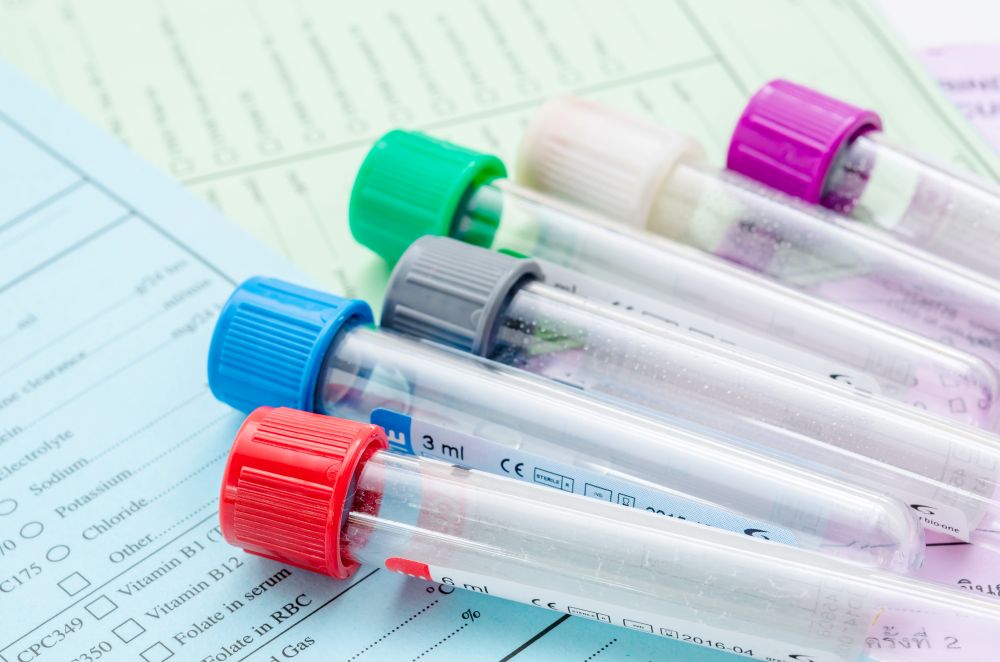
As part of our comprehensive approach to your health and wellness, we offer the Vibrant Wellness Micronutrient test. It’s a simple blood test, but the results can be surprising! You may have no idea what micronutrients your body is lacking—or how much better you can feel when this is corrected.
So, what exactly are micronutrients, and how can this test help you improve your health?
What are Micronutrients?
You’re all too familiar with macronutrients: proteins, carbohydrates and fats. But what about micronutrients?
As the name implies, micronutrients are the vitamins, minerals and other nutrients your body needs in small amounts. They have an enormous impact on your overall health. Micronutrients:
- Produce and release energy
- Strengthen your immune system
- Reduce inflammation
- Maintain a healthy hormonal balance
- Build strong bones and teeth
- Slow down cellular aging
- Promote proper nerve and muscle function
Why Should You Get a Micronutrient Test?
Do you live a healthy lifestyle, eating clean, exercising, getting enough sleep, yet still feel like something is off? Have you experienced symptoms that doctors and testing can’t explain? Do you feel you don’t feel or look as good as you think you should, or you use to? For these and many other reasons, micronutrient testing may offer some incredible insights into why this is happening.

Our diets don’t always provide us with all the nutrients we need. Certain medical conditions and medications can interfere with the body’s ability to absorb nutrients. Emotional or physical stress, a sedentary lifestyle, and much more can also impact our micronutrients. Even if you’ve made no changes to your diet, just the fact of aging can drastically affect your nutritional requirements.
That’s why the Vibrant Wellness Micronutrient test is so revolutionary. It measures both extracellular and intracellular micronutrients.
- Extracellular micronutrients are free floating in your blood, so testing can measure what’s in your blood at a specific time. This measurement depends on recent, short-term diet and supplement intake.
- Intracellular micronutrients are absorbed by your white and red blood cells—a vital step to ensuring all your cells function optimally. Even if you’re consuming a healthy diet or supplements, the micronutrients may not be reaching your cells in sufficient amounts.
Because this test measures micronutrients both inside and outside your cells, it gives a picture of your nutrient levels now and over the past four to six months.
What Does the Vibrant Wellness Micronutrient Test Measure?
The test measures vitamins, minerals, antioxidants, amino acids and fatty acids. Here’s the full list of the 42 micronutrients measured:
| Vitamin A Vitamin B1 Vitamin B2 Vitamin B3 Vitamin B5 Vitamin B6 Vitamin B12 Vitamin C Vitamin D3 Vitamin D,25-OH Vitamin E Vitamin K1 Vitamin K2 |
Folate Sodium Potassium CoQ10 Cysteine Selenium Glutathione Asparagine Glutamine Serine Citrulline Arginine Choline Inositol |
Carnitine Methylmalonic acid (MMA) Calcium Manganese Magnesium Zinc Copper Chromium Iron Leucine/ Valine Isoleucine RBC Omega fatty acids (n3 and n6) |
 What Can You Learn from the Micronutrient Test?
What Can You Learn from the Micronutrient Test?
The test results will show you where you may be deficient in certain micronutrients and how this may be affecting specific areas of your health.
In the first example page, you can see it measures:
- Neurological cognitive function and mood
- Liver detoxification
- Gastrointestinal barrier
- Bone, joint and muscle health
- Cardiovascular health
- Mitochondrial function, skin and anti-aging
 For each, it gives an overall score (from 1 to 100) and shows which micronutrients are in normal ranges and which are in abnormal ranges. It also shows current results versus previous results, so you can see any changes.
For each, it gives an overall score (from 1 to 100) and shows which micronutrients are in normal ranges and which are in abnormal ranges. It also shows current results versus previous results, so you can see any changes.
The second example page focuses on a specific micronutrient, in this case, vitamin B1. Here, you can see:
- How vitamin B1 affects you physiologically
- How it gets depleted
- What can result from B1 depletion
- Foods to eat to increase B1 levels
- Supplement options
As you can see, this test is comprehensive. Because of this, we offer it to our patients as one of our first steps in determining the root causes of illness and hormonal imbalance.

